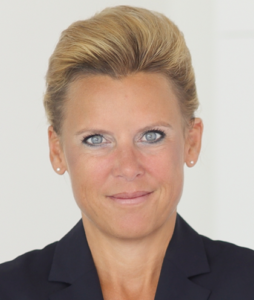
What do we mean by “measurement instruments” in the social sciences?
Empirical social science is built on data, for example self-reports. This kind of data is assessed through measurement instruments that aim to reflect the reality, or the so-called “true score”. The better an instrument, the better the representation of reality. In order to get credible data and results in empirical social sciences, we need to rely on high-quality measures.
What are examples of social surveys for the general population?
There are numerous national and international comparative surveys, and they all aim to best represent their target populations. Some surveys focus on specific target groups – for example immigrants, employees, etc. – some are social surveys for the general population.

Typical and well-perceived surveys are political polls that are used to predict an election outcome. Also PISA (Program for International Student Assessment) the student skills survey carried out by the Organisation for Economic Co-operation and Development (OECD), is highly known. As can be seen by these two examples, results of surveys are used not only by researchers but also by political stake-holders, for instance, to improve the educational system in a country.
What are the challenges in this kind of measurement?
Phenomena like political opinions or cognitive skills, the so-called constructs, are difficult to grasp and describe appropriately, and assessment instruments have to be of high psychometric quality in order to draw valid conclusions from data.
Participation in surveys is in most cases not compulsory. This means that a survey should not be too long, burdensome or complicated for people, to reduce the impact on the response or participation rate in a survey – most of us would be more willing to participate in a 20 min interview than in a 60 min one!
In addition, surveys that represent the general population are expensive. Each minute we add to an interview produces a significant amount of extra costs. This is why measurement instruments need to be efficient.
Why a new academic journal is needed in this field? What is Measurement Instruments for the Social Sciences aiming at?
Measurement Instruments for the Social Sciences (MISS) is set up to improve the quality of the measures used in social sciences. It does this in at least three ways. First, we aim to increase the comparability of data across studies and the re-usability of validated high-quality measures, and the journal is a venue for disseminating such scales. Second, MISS provides a platform for methodological improvements when it comes to test the quality of measurement instruments. Finally, by setting up this journal we aim to increase the visibility of reliable measurement instruments in the social sciences and the emphasis on their validation and credit.

Beatrice Rammstedt is professor of Psychological Assessment, Survey Design and Methodology at the University of Mannheim as well as vice president and scientific director of the department Survey, Design and Methodology at GESIS – Leibniz Institute for the Social Sciences. Her research interests include issues from questionnaire design and validation to assessing non-cognitive skills (special focus on Big Five personality dimensions) to the methodology of cultural comparative large-scale studies. Prof. Rammstedt is a member of several advisory boards, such as the OECD expert panel on the measurement of personality traits and non-cognitive skills in PIAAC, the advisory group „Framework Programme Educational Research” and the scientific advisory board of the “Decade for Literacy” – both launched by the Federal Ministry of Education and Research, Germany (BMBF). She has authored or co-authored more than 100 papers which are highly perceived by the research community (>4500 citations).
 Having studied psychology at the Universities of Trier and Heidelberg (1997-2003), Dr Matthias Bluemke worked on his PhD-Thesis, titled „Chances and risks of psychological diagnostics with implicit association tests (IAT)“ (2006). Afterwards he taught and did research at the Social Psychology Department at Heidelberg, except for two years (2010-2012) when a DFG postdoc stipend supported his work as a visiting scholar at the University of Otago, Dunedin, in New Zealand (Social Cognition Lab). Parallel to working he studied Medical Biometry/Biostatistics at the University of Heidelberg (2014-2017), where he obtained his Master of Science. Since 2016 he has worked at GESIS – Leibniz Institute for the Social Sciences, in the Survey Design & Methodology (SDM) department. He is currently member and deputy leader of the team Scale Development and Documentation (SDD), with a focus on and instrument development and method consulting.
Having studied psychology at the Universities of Trier and Heidelberg (1997-2003), Dr Matthias Bluemke worked on his PhD-Thesis, titled „Chances and risks of psychological diagnostics with implicit association tests (IAT)“ (2006). Afterwards he taught and did research at the Social Psychology Department at Heidelberg, except for two years (2010-2012) when a DFG postdoc stipend supported his work as a visiting scholar at the University of Otago, Dunedin, in New Zealand (Social Cognition Lab). Parallel to working he studied Medical Biometry/Biostatistics at the University of Heidelberg (2014-2017), where he obtained his Master of Science. Since 2016 he has worked at GESIS – Leibniz Institute for the Social Sciences, in the Survey Design & Methodology (SDM) department. He is currently member and deputy leader of the team Scale Development and Documentation (SDD), with a focus on and instrument development and method consulting.
Comments